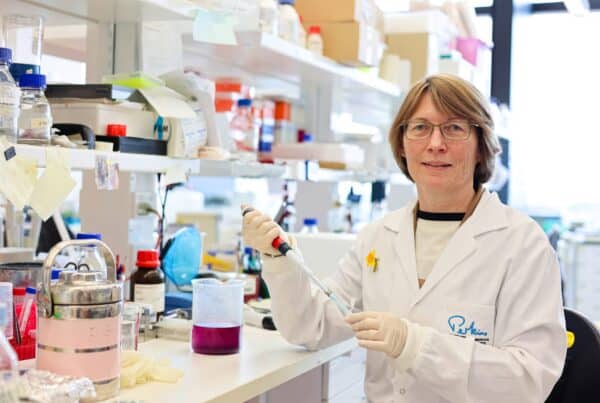The Perkins reaches major milestone in delivery of a Comprehensive Cancer Centre for WA
Read More
The Laboratory for Cancer Medicine team is driving a program of research that aims to discover new ways of treating cancer. The initial focus was on hormone dependent cancers, such as breast and prostate, but in recent years has expanded to include other cancers which may be associated with a poor prognosis – liver, colon, melanoma and head and neck. Our goal is to discover ways to abrogate the key pathways driving the growth of these tumors, with a view to translating some of these discoveries into new therapies.
From the mechanistic point of view, we have had a long-term interest in RNA biology and human disease, and this has led to discoveries of novel RNA-binding proteins that are involved in regulating hormone action in breast and prostate cancer. One of these, SLIRP, is a repressor of nuclear receptor hormone action that we are exploring in the context of prostate and colon cancer. Several other novel regulators of hormone action have been identified (eg. PACT), which are being investigated using genome-wide approaches in the context of their role as activators of prostate cancer growth.
Our interest in RNA biology was a natural fit for developing significant focus in microRNAs and cancer. microRNAs are short non-coding RNAs that play central roles in regulating normal cell growth. They offer great promise in cancer biology, as they present new avenues for diagnostics and therapeutics. Our studies have resulted in the discovery of several “tumor suppressor microRNAs” that suppress key signalling pathways in poor prognostic tumors, such as head and neck, melanoma and liver cancer. One of these, microRNA-7 or miR-7, acts a potent suppressor of cancer cell proliferation and invasion by targeting the EGF-receptor (EGFR) pathway. In parallel with our work to explore the functional biology of miR-7 in EGFR-driven tumors (head and neck, liver, prostate, glioma) using genome-wide approaches and preclinical models, we have established a spin-out company, miReven, which is focused on developing miR-7 as a potential ‘miR replacement therapy” for these cancers which we hope to move into early phase clinical trials in the forthcoming years.


